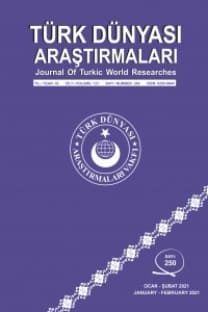Bilgi toplumunun gerektirdiği yenilikçi insangücü yetiştirmenin yolu: Sınavlardaki soruların mahiyetini değiştirerek ezberci eğitimden analitik eğitime geçiş
Bilgi toplumuna geçiş sürecinin yaşandığı günümüzde Türk Eğitim Sisteminin, bilgi toplumunun ihtiyaçlarına uygun olmayan, tek tip, standart insan yetiştiren ezberci yapısı hemen herkes tarafından dile getirilmekte ve sürekli eleştiri konusu yapılmaktadır. Ezberci olmayan eğitim uygulamaları için pilot okullar gibi değişik projeler uygulanmış, ancak tüm bu söylem ve çabalar eğitim sisteminde yaygın bir uygulamaya ve değişime ulaşma noktasında başarılı olamamıştır. Oysa tüm sistemi, çok kolay, pratik, etkin ve çok kısa sürede değiştirmek ve reforme etmek mümkündür. Türk Eğitim Sistemini analitik ve katılımlı bir yapıya dönüştürmenin yolu, özellikle merkezi yapılan, Anadolu Lisesine, üniversiteye ya da işe girme gibi gençlerin geleceğini belirleyici role sahip SBS, ÖSS, ALES, KPSS, TUS gibi merkezi sınavlarda sorulan soruların mahiyetini değiştirmektir. Bu sınavlarda ezber yoluyla öğrenilmiş bilgiyi ölçen sorular yerine, düşünme, muhakeme, yorum ve sonuç çıkarma gerektiren analitik sorular sorulduğunda ilk-orta-lise ve yükseköğrenimdeki tüm okullar, dershaneler, hocalar ve öğrenciler bu sisteme göre pozisyon alacak ve uyum sağlayacaklardır.
Educating the innovative labor that information society needs: Transition from rote-learning to analytic education by changing the content of exams
In the process of transition to the information society, the inappropriate structure of the Turkish education system has been criticized by almost everyone. In order to reform the system and eliminate rote learning, many projects, such as pilot schools have been implemented. Nevertheless, all such discourses and efforts have yet been successful in achieving a substantial practice and success. In deed, it is possible to reform the system in a short period of time. The way of transforming the Turkish education system from rote-learning to analytic education is changing the content of the centrally organized exams, which are taken by all students, that solely determine the entrance to high schools, universities and public jobs. In these axams, the main purpose should be evaluating the analytical capability such as critical thinking, comparing, problem solving and inducing, instead of letter-perfect data. In this case, since the main target of the actors of the education is to be successful in these exams, all education institutions (primary-secondary-high schools, universities, and supportive course institutions), teacers-lecturers and students will adapt themselves to the new system. Thus, such an important reform will be realized easily.
___
- Açıkgöz, Ersoy, Bernur ve Canan Muter Şengül, Yenilikçiliğe Yönelik Devlet Uygulamaları ve AB Karşılaştırması, Yönetim ve Ekonomi, Yıl: 2008, Cilt: 15, Sayı: 1, Manisa, Celal Bayar Üniversitesi, İ.İ.B.F., ss. 59-73.
- Altunbaşak, Yücel, 24. BTYK Toplantısındaki Yenilik ve Girişimcilik Sisteminde İnsan Kaynakları ve Eğitimin Rolü başlıklı sunumu, Ankara, 7 Ağustos 2012.
- Balcı, Yusuf, Geçmişten Geleceğe Çalışma İlişkileri, Çerçeve, Cilt: 5, No: 16, s. 77-89, Mayıs-Temmuz 1996.
- DPT, Bilgi Toplumu İstatistikler, DPT Yayınları, No: 2826, Ankara 2011.
- European Parliament, The Lisbon Strategy 2000-2010, An Analysis and Evaluation of the Methods Used and Results Achieved, Final Report.
- Brussels: European Parliament, Directorate-General for Internal Policies, Policy Department.
- Insead and Wipo, Global Innovation Index Reports, Ed. Soumitra Dut- ta, (2013, 2012 and 2011).
- Kalkınma Bakanlığı, 10. Kalkınma Planı 2014-2018, Ankara, 2 Temmuz 2013.
- ÖSYM, 2013 Yılı ÖSYS Tercih Kılavuzu, Tablo 4: Merkezi Yerleştirme ile Öğrenci Alan Yükseköğrenim Lisans Programları.
- Tonta, Yaşar ve M. Emin Küçük, Sanayi Toplumundan Bilgi Toplumuna Geçiş Sürecinde Temel Dinamikler, Bilgi Çağı ve Teknolojik Gelişmeler Işığında Toplum, Yönetim, Yönetici ve Lider Yaklaşımları Uluslararası Sempozyumu, İstanbul, 12-13 Mayıs 2005.
- TÜBİTAK, Ulusal Bilim, Teknoloji ve Yenilik Stratejisi 2011-2016, Ankara, Aralık 2010.
- TÜBİTAK, Bilim Teknoloji Yüksek Kurulunun Muhtelif Toplantılarında Alınan Kararlar, Ankara.
- Uzkurt, Cevahir, Pazarlamada Değer Yaratma Aracı Olarak Yenilik Yönetimi ve Yenilikçi Örgüt Kültürü, Beta Basım Yayım, İstanbul 2008.
- ISSN: 0255-0644
- Başlangıç: 1979
- Yayıncı: Türk Dünyası Araştırmaları Vakfı
Sayıdaki Diğer Makaleler
Kazakistan'da yaşayan Gagauz Türkleri ve dilleri üzerine
Güneydoğu'da alt kimlikler ve toplumsal dinamikleri
Ongutlar'ın (öngütler) kökenleri hakkında kaynaklar ve sha-t'o-ongut akrabalığı üzerine araştırmalar
Bilge Alperen: Prof. Dr. Turan Yazgan
Türk DÜnyası destan zenginliği veTürkmen destanları üzerine
Dedem Korkut'un saklı kalmış bir hikâyesi
Romalı tarihçi OLympiodorus'un Türk tarihi bakımından önemi
Türk Dünyası araştırmaları vakfı ve Prof. Dr. Turan Yazgan'ın Türk Dünyası için yaptığı hizmetler
Turan Yazgan'ın Türk kültür tarihindeki yeri
